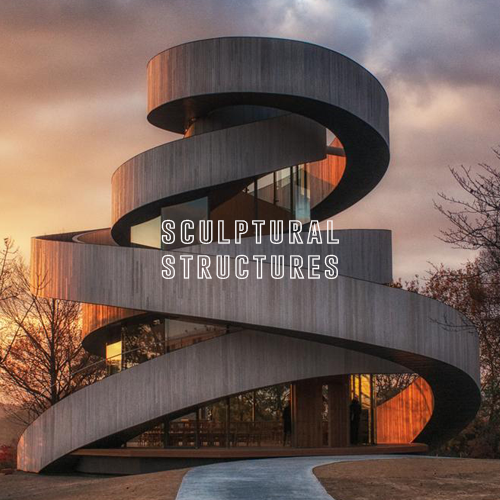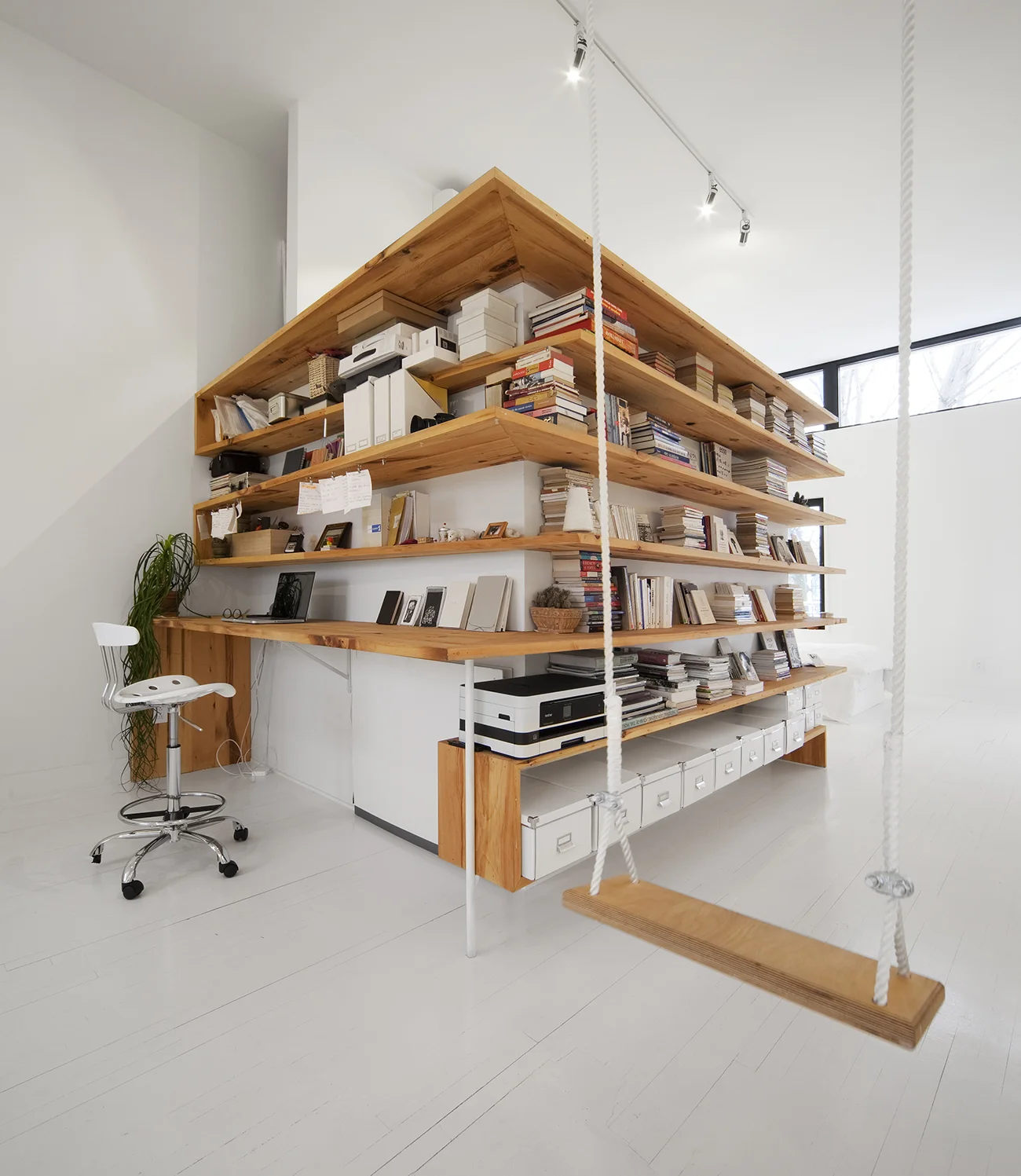Juliette aux combles: A Plateau Mont-Royal Renovation by L. McComber
/Transforming an attic into a bookcase - "Nothing is lost, nothing is created, everything
is transformed."
Montréal, Canada
In approaching this renovation, the design team at L. McComber ltée studied the composition of the existing building and identified multiple layers added to one another over time. These additions had compressed the living space since the original construction dating back to 1880.
Inside the attic, the architects found that the current flat roof was built on top of a former sloped roof together reaching a thickness of over five feet which was mixed in with layers of tar. Through a subtraction process and by replacing the existing structure with new joists, they strategically gained 5 feet of space, therefore making up a 13 foot height on the third floor. The space of the new master bedroom and artist studio gained in natural light with the integration of a ribbon window where the attic was.
The floor is organized around a small volume wrapped by hemlock shelves obtained through the careful deconstruction of the roof structure.
The patina of the aged wood is preserved and highlighted by contrast as the surrounding are composed of abstract white surfaces. The shelves winding around the volume seem to protect a secret.
This volume is sliced in two by a tempered glass roof, bringing natural light into the marble tiled shower.
If the main intervention unfolds on the top floor, several situations were identified throughout the house as opportunities for small interventions.
Although textures vary, a white paint finish is applied in order to preserve the original textures and the beauty of wooden structures while connecting their various expressions together.
The changes introduced throughout the house support a contemporary family dynamic. By rethinking space distribution and by integrating moving partitions, the house can adapt to everyday needs with new areas dedicated to children and parents and with added possibilities in terms of privacy. This project puts forward an intervention, which, despite its small scale, expresses with strength and sensitivity the expression of a local architecture.
Photography courtesy of L. McComber ltée












